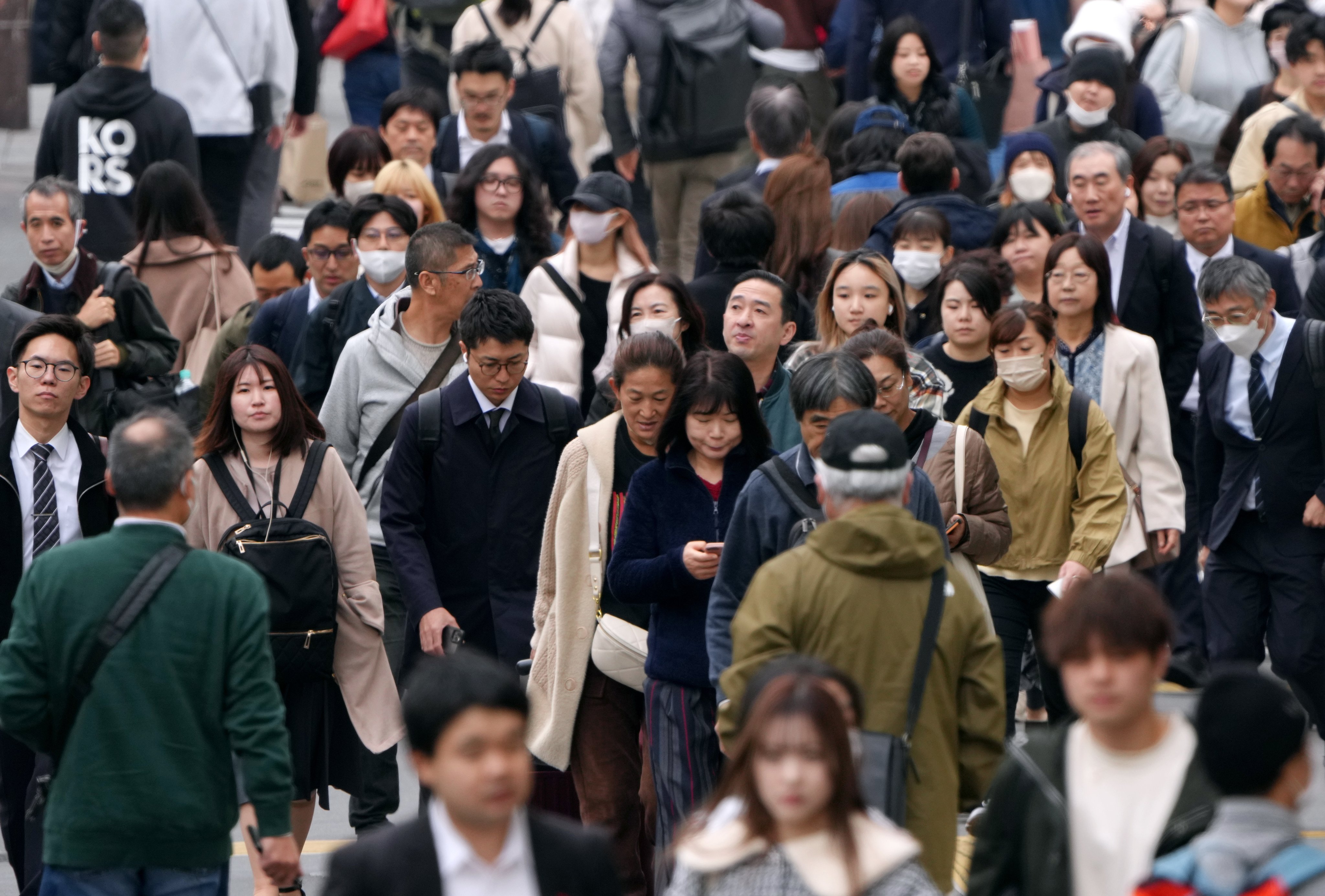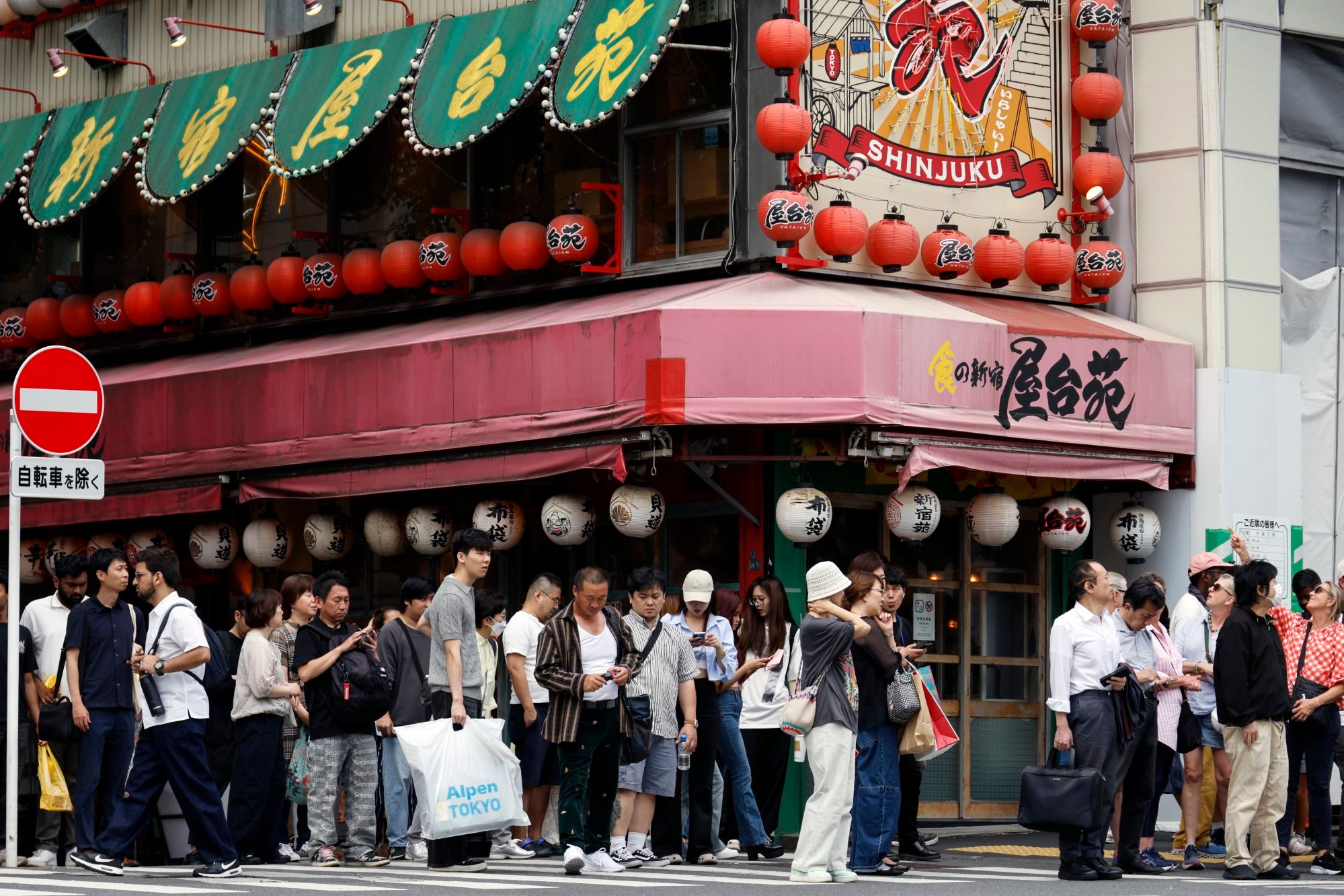Pessimism rising in Japan as 70% say country is in decline: survey
According to an Ipsos poll, the percentage of Japanese who think their country is on a downward trend has increased by 30 points since 2016

A growing majority of Japanese believe their country is on a downward trajectory – a dramatic rise from less than a decade ago – as concerns mount over economic stagnation, political alienation and the social consequences of immigration, a global survey has found.
Seventy per cent of Japanese respondents agreed with the statement that Japan is “in decline”, according to the latest survey by polling firm Ipsos – up 30 percentage points from a similar poll in 2016 and one of the steepest increases among the 31 countries surveyed.
Only two countries – France and Turkey – reported a higher share of respondents believing their nation is in decline in the most recent poll, released last month. Japan was also well above the 57 per cent average of all countries.
Ipsos described the findings as part of a global trend, warning: “The diagnosis is stark: across the globe, a profound pessimism is setting in.”
While the report noted that this sense of “societal fracture” is especially acute in Western democracies such as the US, Britain and France, it emphasised that the sentiment has clearly spread to other regions – including Japan.
The study identified three main drivers behind the perception of national decline: economic anxiety and stagnation, growing disillusionment with political elites, and increasing concern over immigration – issues that have become increasingly salient in Japan in recent years.
“I am totally in agreement with the majority,” said Sumie Kawakami, a social sciences lecturer at Yamanashi Gakuin University.
“There is a generation of Japanese who lived through the ‘bubble years’ of the late 1980s and experienced that economic boom who now look back at how the country used to be,” she told This Week in Asia. “They never thought about the cost of eating out or going out, they travelled abroad because it was easy and cheap and everything was possible.”
That is manifestly no longer the case, she pointed out.
“Japan is full of foreign tourists because it is cheap to come here because the yen is weak and Japan’s relative economic decline is very clear,” she said.
“Economic growth has been stagnant for years – they used to talk about the ‘lost decade,’ then it became the ‘lost two decades’ and now the 1980s were 40 years ago.
“People do not sense the economy is growing, but they do feel prices going up and salary growth failing to grow at the same rate,” she said. “And that means people have less disposable income to do the things they want to.”
More troubling, Kawakami argued, is the small but persistent segment of the population – 8 per cent, according to the Ipsos survey – who feel the country is not in decline, despite the broad economic and social evidence.
Among them is Ken Kato, a conservative small-business owner based in Tokyo. He acknowledged the economic contrast with the 1980s but maintained that Japan retains the capacity to recover.
“My generation experienced the bubble and there was just so much enthusiasm,” he said. “People can look at the economy, the way that Japan is today and compare it with then and be negative, but I prefer to see the potential.

“If you go back 80 years ago, Japan had been defeated in the war, Hiroshima and Nagasaki had been the target of atomic bombs and Tokyo had been burned to the ground,” he pointed out. “But just 20 years later, Japan had rebuilt from that complete devastation and was on the way to becoming the economic power that it is today.
“I believe we can do that again,” he added.
For Kato, however, the greatest threat to Japan’s future lies not in economic mismanagement but in external security – particularly China’s growing military assertiveness and its territorial claims in the region.
“China is being aggressive in the way it is using its military and in claiming ownership of Taiwan,” he said. “If that continues, then China could take control of the sea-lanes that Japan relies on for imports and exports.”
Beyond the headline figure on national decline, the Ipsos survey also found that 53 per cent of Japanese respondents agreed that their society is “broken” – an increase of 21 percentage points from 2019, though still below the global average of 56 per cent.
A majority also agreed with statements suggesting the economy is skewed in favour of the wealthy and powerful, that mainstream political parties do not represent ordinary people, and that the country needs a “stronger leader” to restore order and direction.
Views on immigration were more mixed but shifting. Some 28 per cent said Japan would be better off if immigration was halted, up 14 points from 2016 and slightly higher than the 26 per cent who supported more immigration. The largest bloc – 37 per cent – expressed no clear opinion either way.
Kato, who is firmly opposed to large-scale immigration, argued that Japan’s population decline is not an urgent concern, pointing out that past economic booms have triggered baby booms.
“The same thing can happen again, and in the meantime we can make advances in technology and artificial intelligence that can solve the short-term problems,” he added.